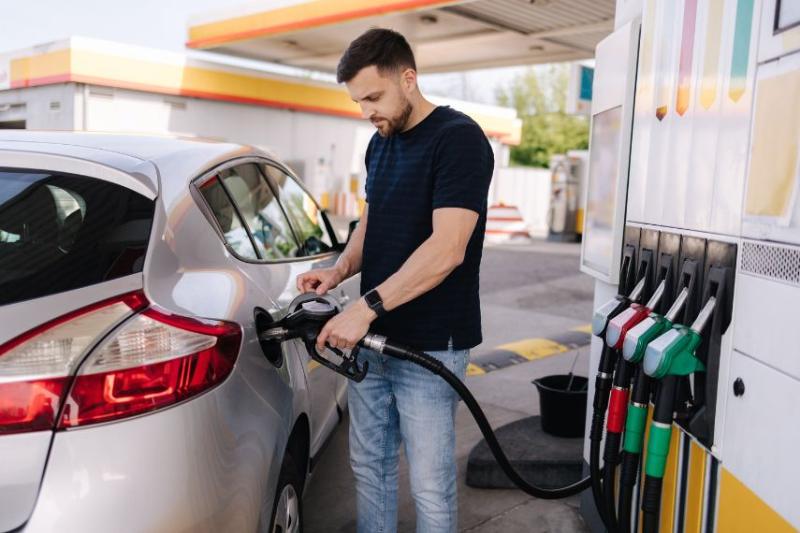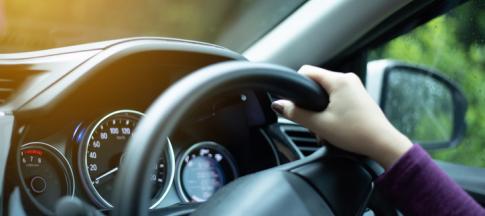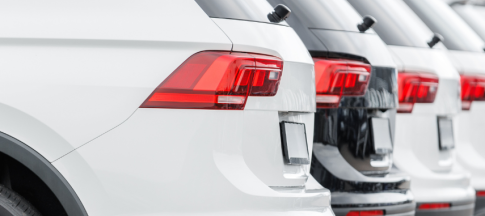
With the rise of electric vehicles and changing regulations around ICE cars, it feels like the tide is turning against diesel cars.
Between March 2024 and March 2025, we’ve seen a 10.1% drop in new diesel cars being registered, according to The Society of Motor Manufacturers & Traders (SMMT).
But what’s the truth about running and owning a diesel car, and what do you need to be aware of when buying one?
Diesel cars and the environment
Diesel cars have started to come under more scrutiny in recent years when it comes to their environmental impact.
It is true that diesel cars emit lower levels of carbon dioxide (CO2) than petrol cars, which is a positive.
On the other hand, they produce a lot higher levels of other pollutants, like particulate matter (PM) and nitrogen oxide (NOx).
Both these pollutants unfortunately contribute to climate change and poor air quality – which affects us all!
Are diesel cars fuel efficient?
Yes, diesel cars tend to be fuel-efficient, especially for long journeys or on motorways.
This is because they need fewer engine revs and less pressure on the accelerator, so they tend to use less energy.
That means you save on fuel, especially compared to their petrol counterparts.
What is ULEZ?
ULEZ stands for Ultra Low Emission Zone.
It’s a ‘clean air zone’ in London, which was introduced in 2019 and was the first of its kind in the UK.
A clean air zone is an area that has certain rules and restrictions in place to improve the air quality.
If your car doesn’t meet the emissions standards, you’ll need to pay a daily charge to drive anywhere in the clean air zone, which covers all of London’s boroughs.
It operates 24 hours a day, all year round (apart from Christmas Day).
Are diesel cars ULEZ compliant?
Most diesel cars manufactured since 2015 meet the ULEZ emissions standards.
If you’re not sure, you can check if your car is ULEZ-compliant on Transport for London’s website.
Other clean air zones
ULEZ is London’s clean air zone, but it's not just the capital that has one.
There are currently seven cities in the UK with clean air zones:
- Bath
- Birmingham
- Bradford
- Bristol
- Portsmouth
- Sheffield
- Tyneside - Newcastle and Gateshead
Check the government website for more details.
What are diesel cars good for?
There are lots of strengths that diesel cars have and could be useful to you.
Long journeys
Diesel cars are very fuel-efficient when driving at a regular speed on motorways.
That means they’re especially good for long journeys!
Rural locations
Rural areas often come with hills, bumpy roads, or just more distance between places.
Like we said above, they’re fuel-efficient so the longer distances should be no trouble.
Plus, they usually have powerful acceleration, meaning they’re better at handling uneven terrain.
Larger and heavier vehicles
Bigger, heavier cars need more power – and diesel cars can usually provide it.
They have better pulling power, meaning they can move heavier cars without struggling too much.
Towing
Again, diesel cars have good pulling power (especially at lower speeds), so towing is a little easier for them.
Plus, their fuel economy means they’re less likely to need to stop often to refuel.
What to check when buying a used diesel car
If you’re buying a used diesel car, there are a few things you need to check before you commit to buying.
Exhaust
Because diesel fuel is a bit thicker, it tends to emit a bit of black soot from the exhaust.
If there’s a build-up of it, there might be a problem with either the exhaust or the engine combustion.
Also, check the colour of the exhaust smoke – if it’s white or too thick, again that’s a warning sign.
Oil
Take a look at the dipstick.
If there’s any white on it, it’s best to move on. This means there are probably issues with the engine.
Also, check to see if there’s any oil leaking.
Radiator
Check the radiator to see what the fluid inside is like.
Some red flags to look out for include if the fluid is:
- lumpy or gunky
- has streaks
- isn't a consistent colour
General handling
Just the same as all cars, it’s a good idea to get a feel for how the car handles.
Take it out for a test drive and pay attention to what the steering is like, and if it vibrates.
Tyres
It’s always important to have a look at the tyres, to make sure they’re still in good shape.
Check for:
- any uneven wear – this indicates the wheels might be misaligned
- tread depth – if the tread depth is below the legal minimum of 1.6mm, it can be dangerous
Tyres can be expensive to replace, so it’s important to check before you commit to anything.
Blowby
Blowby can be common in diesel cars. It’s when some of the engine’s gases get past the ‘piston rings’ and get into the ‘crankcase’.
It sounds complicated, but all it means is you could be facing some long-term problems with the engine and pressure build-up.
To check for blowby, you should:
- watch the exhaust – blue or white smoke could be an indicator
- pull the dipstick – if smoke comes out when you do, there could be blowby
- remove the oil filler cap – do this while the engine’s running, and look for any excessive smoke
Should I buy a diesel car?
It all depends on what you use your car for and where you drive.
If you live in a rural area, do a lot of long journeys or are often towing heavy loads, a diesel car might be for you.
If you live in the inner city or only drive medium to short distances, it may not be the right choice. Instead, you could take a look at electric vehicles or hybrid cars.
EVs are well-suited to city living – although they can be great for rural and long journeys too, as long as you plan ahead.
Are diesel cars going to be made illegal?
From 2030, the UK government is putting a ban on diesel cars.
This will only apply to new vehicles, so you’ll be able to keep driving yours after that date.


